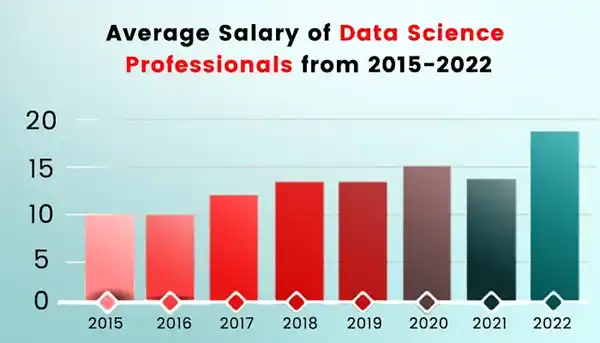What Topics are Covered in a Typical Data Science Certification Program?
The field of data science has emerged as an imperative one in the modern era, allowing businesses to mine vast amounts of facts for useful information and insights. There has been a steady increase in the demand for data scientists, which has led to the development of a great number of respective certification programs that provide individuals with the knowledge and abilities that are required.
These programs typically cover a broad range of subject matter, providing a comprehensive foundation in the fundamental principles, methodologies, and tools. The purpose of this article is to investigate the topics that are typically covered in a data science certification program, to highlight the primary areas of focus as well as the significance of those areas.

Data Manipulation and Analysis:
The capacity to effectively manipulate and analyze figures is a fundamental component of the field of data science. Because of this, the majority of certification programs emphasize skills such as data cleaning, exploration, visualization, and fundamental statistical analysis.
Participants receive instruction in methods for managing both structured and unstructured statistics, to improve the overall quality and reliability. In addition to this, they become proficient in the tools used for the respective exploration and visualization, which enables them to recognize patterns, trends, and insights that are concealed within the data.
Programming and Software Tools:
Data scientists must have a strong command of various programming languages and software tools. Bearing this in mind, certification programs frequently focus on programming languages such as Python or R in addition to the libraries and frameworks associated with these languages.
You will get access to well-known data science libraries such as pandas, NumPy, sci-kit-learn, and TensorFlow. Moreover, they acquire practical experience with tools such as Jupyter Notebook, SQL, and Git, which enables them to perform data manipulation, analysis, and version control effectively.
Do You Know: The term “data science” was first used in 1985 in a lecture at the Chinese Academy of Sciences in Beijing. C.F. Jeff Wu used the term as an alternative to “Statistics”.
Machine Learning:
Machine learning is at the core of data science; therefore, it is imperative to have a comprehensive grasp on its underlying principles. The various algorithms and methods of machine learning, including both supervised and unsupervised learning, are covered in the introduction provided by certification programs.
Participants receive education on a variety of statistical techniques, such as regression, classification, clustering, and dimensionality reduction. They also get familiar with model evaluation and validation techniques, which allows them to ensure that the models that are developed are effective and robust.
Statistical Analysis:
In most cases, the training courses leading to a certification in the same field will include a thorough examination of statistical analysis. Contenders will know the inside out of concepts in statistics, including testing hypotheses, probability distributions, sampling, and statistical inference.
These ideas give data scientists the ability to draw credible inferences and meaningful conclusions from the information they analyze, which in turn strengthens the credibility of the findings they produce.
Data Visualization:
Being able to present data in a meaningful way through the use of visualizations is a vital skill for data scientists to possess. Certification programs frequently devote a significant amount of attention to different methods and tools for this visualization. Participants are instructed in the art of producing compelling visual representations of data, which enables the contenders to communicate their insights in a manner that is both clear and succinct.
They acquire the skills necessary to construct meaningful visual narratives by making use of libraries such as Matplotlib, Seaborn, and Tableau. These skills allow them to improve processes that are data-driven decision-making.
Interesting Fact: In 2012, the technologist Thomas H. Davenport and DJ Patil called it “Data Scientist: As the sexiest job of the 21st century”. This phrase got picked up by the New York Times also.
Data Mining and Big Data:
In this day and age of exponential data growth, the ability to extract useful insights from large datasets is of the utmost importance. Data science certification programs introduce participants to data mining techniques and big figures concepts.
They acquire the skills necessary to navigate distributed computing frameworks such as Apache Hadoop and Spark, which allows them to gain insights into effectively managing massive datasets.
In addition, the members investigate different tools and methods for mining and feature extraction. This gives them the ability to recognize patterns, relationships, and predictive models.
Data Wrangling and Preprocessing:
Data wrangling and preprocessing techniques are typically covered in certification programs. These techniques address challenges such as missing figures, outlier detection, and feature engineering.
Participants will learn how to organize and clean data before transforming it into a format that is suitable for examination. These methods guarantee the correctness and dependability of the statistics, thereby laying the groundwork for an analysis that is both precise and insightful.
Deep Learning:
Because deep learning is favored, certification programs frequently include an introduction to neural networks, related architectures, and frameworks such as Keras and PyTorch.
One receives a new understanding of the process of training deep neural networks and applying them to difficult data analysis tasks. They now have access to more advanced tools for performing tasks such as image recognition, natural language processing, and recommendation system development as a result of this knowledge.
Privacy and Ethics in Data Handling:
Data scientists have a responsibility to handle figures ethically while also protecting the privacy of individuals. Contenders in certification programs are required to demonstrate that they have an understanding of the significance of responsible data usage and that the programs address the ethical implications of working with facts.
They investigate issues about privacy, legal considerations, and regulations that govern the practices of data science. Because of this knowledge, data science can be approached in a more conscientious manner, which in turn promotes ethical decision-making and compliance.
Case Studies and Projects:
Certification programs frequently include hands-on practical case studies and projects to provide students with the opportunity to gain first-hand experience applying data science methodologies to real-world scenarios.
You will get the chance to work with a variety of datasets, conduct analysis on those, and draw meaningful conclusions. They can develop the skills necessary to tackle complex problems and make decisions based on data as a result of the experiential learning they participate in.
Communication and Presentation:
One of the most vital aspects of data science is being able to effectively communicate findings and present insights that are driven by facts. Certification programs place a strong emphasis on the development of participants’ communication skills, which enables participants to convey complicated information in a way that is clear and easily understood.
They learn how to tell compelling stories using data, utilizing visualizations and narratives to convey insights to stakeholders who are technically oriented as well as stakeholders who are not technically oriented.
Data Engineering:
Data engineering is a significant part of data science that focuses on the creation and management of data infrastructure. It is a necessary subfield of data science. Some certification programs cover subjects associated with it.
These subjects may include data warehousing, data pipelines, and database management systems, amongst others. Participants acquire the knowledge necessary to design effective figure storage and processing systems to support workflows for analysis and machine learning.
Techniques for Feature Selection and Dimensionality Reduction:
Certification programs typically delve into various methods for feature selection as well as dimensionality reduction. You become versed in variety of methodologies, including filtering, wrapper methods, and principal component investigation, among others (PCA).
These methods help in determining which features are the most necessary while also decreasing the dimensionality of the data, which ultimately results in an improved ability to use the model and interpret its results.
Summary:
In addition to the process of developing models, certain certification programs also cover the process of deploying and integrating data science models into production systems. You will acquire knowledge of model deployment strategies, model serving platforms, as well as considerations for scalability, performance, and maintenance.
Because of this knowledge, participants are guaranteed to be well-equipped to take their respective solutions from the development stage to the implementation stage in the real world.
The purpose of a typical data science certification program is to provide one with a comprehensive foundation in the principles, techniques, and tools used in the subject. This is accomplished by covering a wide range of topics during the program.
These programs equip individuals with the necessary skills to excel in the field. Some of the topics that are covered in these programs include data manipulation, programming, machine learning, statistics, visualization, and ethics. Members are allowed to gain hands-on experience by participating in practical case studies and projects.
This enables them to effectively tackle real-world challenges and make decisions based on facts and figures. These certification programs are a pivotal component in enabling individuals to acquire the skills necessary for a prosperous career in the rapidly advancing field as the demand for data scientists’ expertise continues to increase. Also, enhance your respective establishments with web development courses from Simplilearn. Expand your skill set and excel in Data Science.
Roles and Responsibilities of a Data Scientist
Data Science Career Possibilities and Prospects
In Data Science & Programming, What are Those…
How Hard is it to Become a Data…




